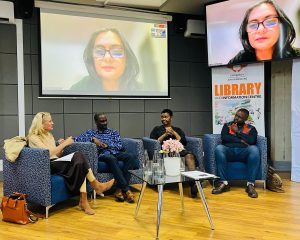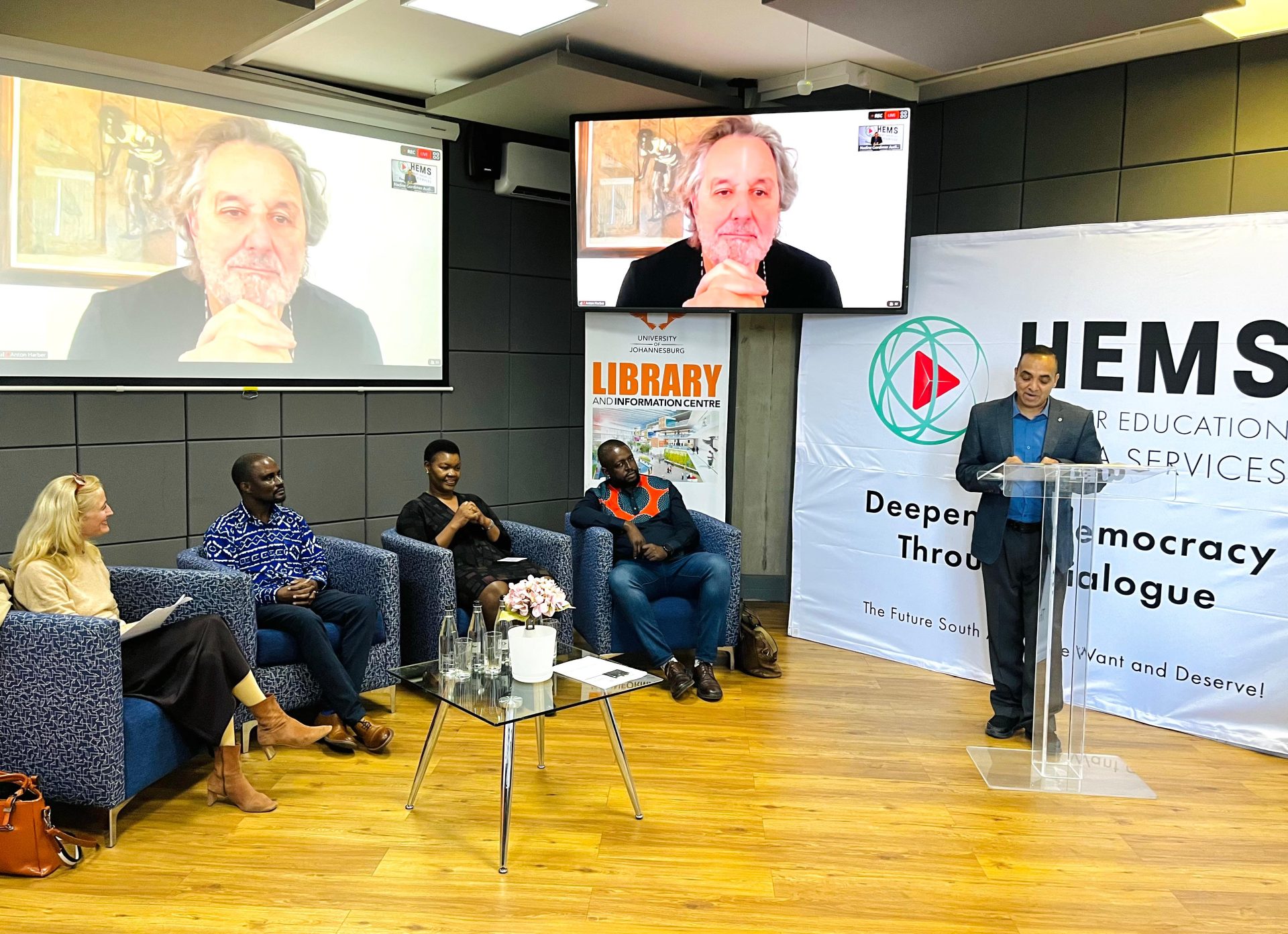By Buddy Naidu
Disinformation and misinformation campaigns on social media and digital platforms have increased fourfold in Africa in just two years.
According to the latest report by the African Centre for Strategic Studies, 39 continental countries participated last year. Worryingly, Russia remains the “primary purveyor of disinformation in Africa”, followed by China and “domestic political actors” (also involved in South Africa’s general elections in 2024).
The report states that these campaigns have “destabilising consequences” and “real world harm” and diminish “Africans’ rights, freedoms and security”.
Now, leading academics, media professionals, local and international journalists, and authors are making a clarion call to combine the African diaspora’s collective intellectual and regulatory capacity. This would leverage its powers and hold these platforms and companies accountable for enabling the proliferation of disinformation.
Said one: “In the end, we have to confront the power of these companies … and this pressure must lead to self-regulation.”
The issue came to the fore at the University of Johannesburg (UJ) this week, which hosted a roundtable on “Speaking the Truth by Understanding the Untruth: Addressing Fake News and Disinformation in South Africa and the African Continent”.
Hosted by Higher Education Media Services, panellists included UJ Vice-Chancellor Professor Letlhokwa Mpedi; the Executive Director of the Press Council of South Africa, Phathiswa Magopeni; author, Executive Director of the Henry Nxumalo Foundation and former Wits University journalism professor, Anton Harber; communications and media head at UJ, Professor Admire Mare; award-winning Kenyan science and investigative journalist, Mary Mwendwa; Reggy Moalusi of the South African National Editor’s Forum; and senior lecturer in media and communications at the University of Mauritius and member of the African Journalism Education Network, Christina Chan-Meetoo.
UJ’s Vice-Chancellor, Mpedi, said the roundtable aimed to urgently “explore fighting for the truth” through practical means. He painted a bleak picture of the current malaise: “As we increasingly see the power of generative AI models, disinformation will undoubtedly spread at a sickening rate. While this takes a global bend, the impact on Africa cannot be ignored.”

The African Centre analysis painted a bleak picture of an increasingly sophisticated disinformation landscape. It said that, together with the foreign and domestic purveyors of disinformation on various digital platforms, there were “significant consequences for democratic processes and stability” in Africa.
RELATED: Overseas engagement drives 22.7% growth in government social Media followership in Q1 2024
It said that enhanced media literacy was required, fostering collaboration among multiple stakeholders and, more significantly, regulating the digital space.
Journalism luminary and author Harber said the continent must unite in the same way the European Union did to combat the spread of disinformation and hold the powerful owners of unregulated multimedia platforms to account.
“We have to get together and combine the strengths of our various countries to hold these huge platforms (such as Facebook, X and TikTok) to account. We can’t allow them to continue with their extraordinary power and influence – only to be unaccountable.”
He said that while this may prove difficult, African states needed to reassert their sovereignty and generate regulation and a set of rules over these platforms, as they do in Europe, Australia, and Brazil.

“In the end, we have to confront the power of these organisations. One prefers self-regulation. We had been optimistic that Facebook/Meta was moving towards self-regulation … they were on that path, but they stepped back in the last few months. That is a big, big blow in the fight against disinformation.”
He added that, continentally, one hoped that finding a familiar voice and exerting pressure over these companies would lead to self-regulation. “Failing that, governments will have to look at prudent regulation.
However, the fear of censorship, compromising, and creating regulations that can be abused to silence people is very real, so regulation is complex and difficult and needs to be careful. Still, we may have to do it.”
He said disinformation was not a new phenomenon in the media space, saying every new media technology “has brought a wave of disinformation and a panic about disinformation”.
“If you look at the arrival of the printing press or the arrival of radio or television, each brought a wave of disinformation and panic about it. There was a period, as is the period we are in now, between the arrival of new technology and learning how to manage, deal, and live with it.”
UJ Professor Mare agreed, saying that tackling the issues of disinformation and regulation cannot be left to individual countries alone.
“We need to have a considered effort. Countries that are considered to be the marginal markets should team up and find ways to have one collaborative voice around the need to regulate. Otherwise, we won’t have the leverage if we speak as individual countries.”

He said it was “unfortunate” that the African Union was not doing much at a continental level to tackle the problem and explore continental regulations. “The European Union is doing something, Australia has done something as well as Canada … so we need to have all these (African) voices coming together to speak as one.”
The Press Council’s Magopeni said: “The ‘superspreaders and farmers of disinformation on the platforms have the biggest authority to legitimise disinformation. It is a big problem, so the idea of teaming up or collaborating among governments rings true because misinformation is a cross-border problem (as well as a transnational one.”
She said evidence of this was the recent campaign waged by Afriforum in the United States that ended up with claims of white persecution by, among others, the US President, taking place in South Africa.
“We thus need a multi-pronged approach (to combat) disinformation and misinformation,” she said.
Chan-Meetoo concurred that disinformation was a problem in Mauritius, especially within the political realm. She said: “We need to team up as countries … it is essential we collaborate to have leverage.”
RELATED: Social Media Awards: A celebration of creative excellence and small businesses
She said cross-border collaboration was also essential for drafting universal regulations, creating fact-checking tools, conducting journalism training and media literacy, and incorporating misinformation and disinformation into mainstream education.
Kenya’s Mwendwa said standalone laws like that in her home country were generally ineffective. “We already have a law in Kenya, the Cyber Crimes and Computer Misuse Act, but the implementation of this is very weak, and not many know how to use it.”
She said disinformation in Africa was spreading rapidly due to technological advances and the easy availability of digital platforms and smartphones. “It is being used in political spaces to promote hate speech and agendas … while one of the biggest issues is online harassment – especially of women politicians and journalists who hold the authorities to account.”
Like her peers, she also called for a holistic approach to the issue, saying: “The public is grappling with this … some simply do not know how to differentiate between misinformation/disinformation and real news … therefore the public needs to be sensitised to these things so that they can discern the real news.” ©Higher Education Media
Buddy Naidu is a senior journalist and communications consultant in Johannesburg.


